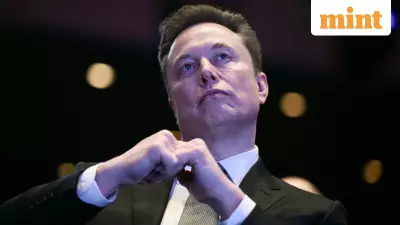
The digital revolution is taking an unexpected turn in India's technology landscape. Amazon's recent workforce reductions have exposed a troubling trend: artificial intelligence is no longer just a buzzword but a active force displacing human workers across the country's lucrative tech sector.
The Silent Workforce Transformation
What began as routine corporate restructuring has revealed a deeper transformation. Amazon isn't just trimming fat—it's fundamentally reshaping its workforce strategy, with AI systems increasingly performing tasks that once required human intelligence and judgment.
Which Roles Are Most Vulnerable?
The impact isn't uniform across all tech positions. Certain roles are facing greater disruption:
- Content moderation teams now compete with AI systems that can scan and flag inappropriate content with alarming accuracy
- Customer service representatives are being replaced by sophisticated chatbots capable of handling complex queries
- Data entry and processing roles are disappearing as machine learning algorithms process information faster and more accurately
- Quality assurance testers find their jobs threatened by automated testing systems that work around the clock
The Indian Context: A Perfect Storm
India's position as the back office of the world makes this shift particularly significant. The country has built its tech reputation on providing cost-effective human resources for global corporations. Now, that very advantage is being undermined by technology that never sleeps, doesn't require benefits, and works at digital speeds.
Major Indian tech hubs including Bengaluru, Hyderabad, and Gurugram are feeling the impact disproportionately. These cities house thousands of Amazon employees and countless other tech professionals in similar roles across different companies.
Beyond Amazon: An Industry-Wide Trend
While Amazon's layoffs have drawn attention, they represent just the tip of the iceberg. Multiple global tech giants operating in India are quietly implementing similar AI-driven workforce strategies. The question is no longer if AI will transform the workplace, but how quickly and how extensively.
The Human Cost
Behind the corporate announcements and technological marvels lie real human stories—experienced professionals finding their skills suddenly obsolete, recent graduates facing diminished job prospects, and entire families facing financial uncertainty.
Looking Forward: Adaptation or Obsolescence?
The rapid advancement of AI presents both challenges and opportunities for India's workforce. The critical question becomes: Can Indian professionals pivot quickly enough to roles that leverage human creativity, strategic thinking, and emotional intelligence—areas where AI still struggles to compete?
Educational institutions, government policymakers, and industry leaders face urgent pressure to develop retraining programs and create new pathways for workers displaced by automation. The future of India's tech dominance may depend on how effectively the country navigates this transition.
One thing is clear: the age of AI-driven workforce transformation has arrived in India, and its effects will reshape the country's economic landscape for years to come.





